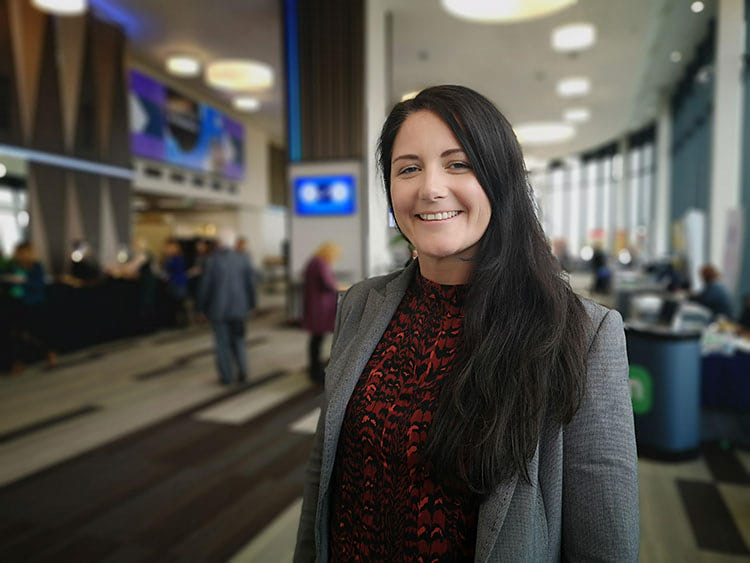‘Hard to reach’ learners and the future of Offender Learning #SETconf19

FE News chat with Marie-Claire O’Brien, from New Leaf Initiative to discuss ‘hard to reach’ learners and how to get involved in offender learning at the #SETConf2019.
Discussing the term “hard-to-reach learners”
It’s kind of a bit of a bug bear of mine really, hard-to-reach learners, it’s not something that we find, to be honest with you. I think a lot of practitioners do find them quite disengaged, and quite hard to reach.
However, I think because of our offer, and the work that we’ve been doing, and the reputation that we’ve built up, we don’t find them hard to reach, in fact they’re seeking us out.
Self referrals are flooding in constantly for our courses, because people know that they lead to tangible, realistic opportunities to work ultimately. That’s what people want, and that’s what adult learners are proven to need in order to engage with education.
What do you see to be the future of offender learning?
There’s been a lot of focus on offender learning lately. The Prison Education Framework contacts were recently awarded. I think it’s still taking a little bit of time for those to embed.
The future that I would like to see for offender learning is qualifications that really support that transition to employment, I think that the system thinks that that’s happening. However, we are supporting learners through the gate, and we know that that’s not happening.
So again, they’re coming out of prison education, feeling quite disenfranchised, quite let down, and frustrated, because they’ve invested in themselves as they were advised to do, and it hasn’t led to the results that they were promised.
So, we’re supporting that. We’ll let them tap into our support through the gate, that’s what we exist to do. I would like to see prison education really speaking with industry, working out the qualifications that are actually going to get people into work as soon as possible, because we know that once people with convictions are in work, they’re actually 50 percent less likely to re-offend.
What is the answer to encouraging more practitioners, more delivery staff into working in the offender learning arena?
There’s a lot of research going on at the moment to fill gaps around people who are leading with convictions. So myself obviously, being an ex-prisoner from many years ago, and now have been welcomed back into the system to engage people into education, training and employment. I think that needs to be expanded upon.
There are some issues with that in terms of security, vetting clearances. It’s quite punitive if you have lived experience of the system and you want to give back, I think that needs to be addressed. I think that the MoJ, and HMPPH really need to examine that, and work out how they can make it easier for people like myself, tutors with those convictions, to go back in and engage people in education.
However, I do understand that security is a priority in prisons, that they’re closed institutions, and they should be difficult to a point to get back into, as well as getting out of.
I think we need to use people with lived experience to engage people, because once they see that you’ve done it, that in itself is inspirational and aspirational to people. They know that they can then do it as well.

Responses